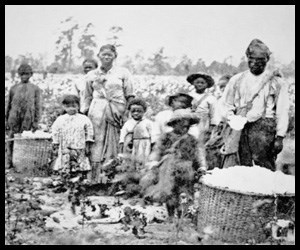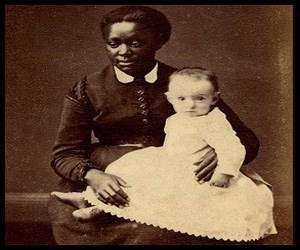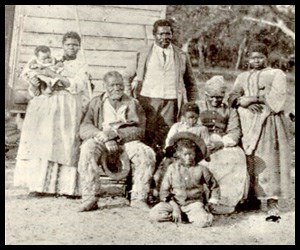
National Archives In 1860, the United States Census reported that there were a total of 4.4 million African Americans in the country. Of this total, approximately 488,000 were free blacks and the remaining 4 million were enslaved. The first African American slaves were brought to the United States in 1619 and slavery flourished in the largely agrarian colonial economy. By the late 18th century, the institution was in decline. This was particularly evident in the Northern states, where slavery was gradually and incrementally abolished. 
National Archives On a plantation, slaves were divided into two groups based on their work responsibilities: house slaves and field slaves. A house slave worked in the master's house in close proximity to the master and his family. Their duties involved cooking, cleaning, nannying the children, acting as a valet, amongst a variety of other tasks. Involving more heavy physical labor, the tasks of a field slave included working the land of the master. 
National Archives In the Kennesaw Mountain region, there were populations of both enslaved and free blacks. However, there were not a lot of slaves in this area as a result of the lack of large plantations. Monemia and James Johnson were two free blacks who lived in Marietta during the Civil War. Monemia ran a restaurant and store and her husband, James, was a barber. James' treasonous dealings with a Union spy, Henry Cole, led him to flee to the city of Nashville, Tennessee. |
Last updated: July 26, 2022
